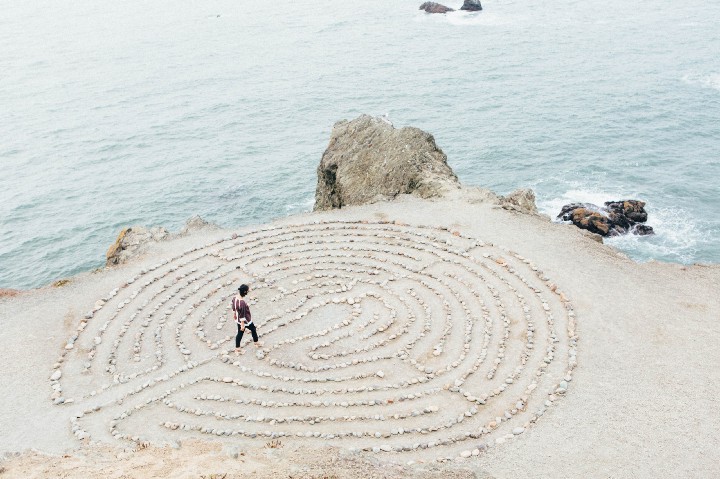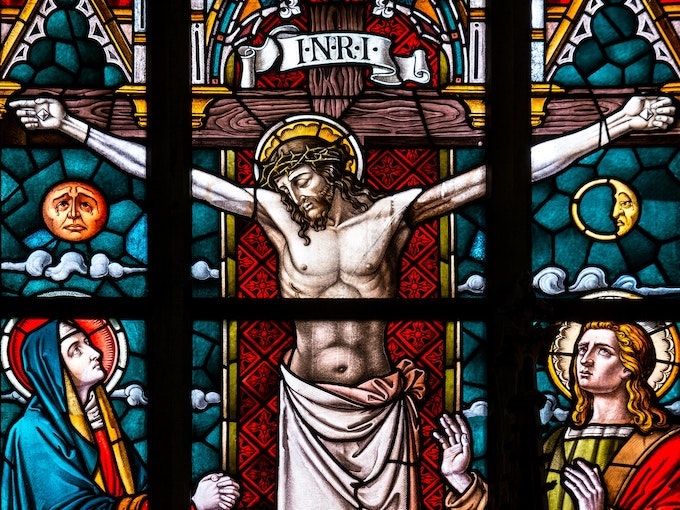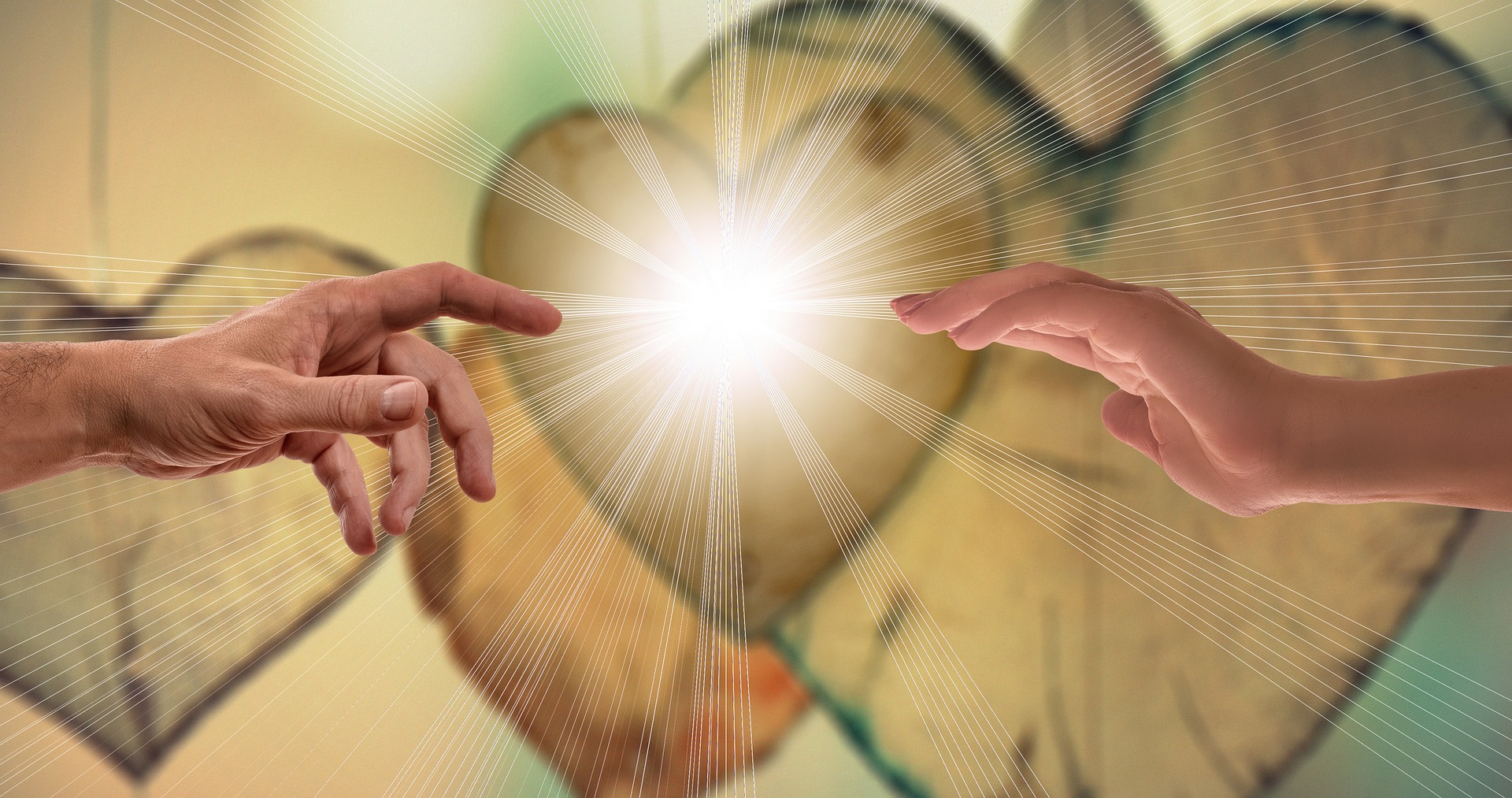written by Anne SkyvingtonSeptember 2, 2021

A metaphorical interpretation from the perspective of a believer
My Thesis
Perhaps what the Christian crucifixion and the Jesus story is all about in the twenty-first century, is foreshadowing the eventual death of the exclusive masculine principle: the ‘Rule of Logic’ and its extreme expression in religious fundamentalism.
Is a new earth consciousness getting ready to be born. Like the baby in the manger of long ago?
I don’t wish to offend any of you who believe literally in the whole religious story and ethos: the idea of the Second Coming in an explicit way. In any case, we come together at an important point: Love is the basis of the Christian story.
I love the idea of ‘God’ and I know that ‘life after death’ is a reality in terms of consciousness continuing in some form or other after death.
The Symbolism
The picture of the dying human figure splayed out on the cross—limbs and body parts pointing in all directions—is perhaps an expression of the ultimate absence of individual free will. Does it, rather, point to the end of the primordial ‘Logos’ controller of earthly events, and to the birth of a gentler and much cleverer ‘Emotional’ cooperative at the forefront of earthly doings?
It’s taken me decades to realize that we don’t really have ultimate free will here on earth. Much has been designed beforehand to a great extent. By us as individuals as we get ready to incarnate as fleshly forms here on Planet Earth?
Guilt and Shame
I have long known guilt, basic to Christian laws, as a personal accomplice. Other people’s nemesis has always been shame. I read somewhere a learned article on the differences between shame and guilt, in which shame was associated with ‘community conscious’ cultures, such as many Asian societies, and the other was more relevant to the individualized West. Perhaps this is an over-simplification, for they join together at some point.
For me, shame is red and guilt is black. Shame is like ripping a band-aid off a sore, quickly, while guilt can invade a mind for a long time, before being exorcised.
Parenting Skills
Shaming-type parents and harshly punitive ones, may deprive their child of a sense of positive self-esteem and confidence that lasts forever. Both models of parenting serve to undervalue a child’s emotional SELF.
Is it time to end the specter of children being pushed to succeed intellectually, while denying them their true birthright of a healthy emotional life? Of course, I’m over-simplifying things here, but it might be time to look at the brain/heart (mind/soul) balance in societies around the world and to think about ways of re-calibrating these polarities.
Emotional Intelligence
Today, much is being written and discussed about the importance of emotional intelligence and its links with conflict resolution. That’s at the adult level and its importance in the workplace. How it is being applied at the level of childhood, is the critical question for me. Again, I can only speak from my own experience. I carried guilt about my eight-year-old brother’s near-death accident for decades. No one talked to me about it at the time in the fifties.
My daughter’s experience of parenting has been complementary to mine. Kate is on the side of the emotions. I wasn’t surprised to discover that she had become ‘a good parent’ to her two boys, in spite of her own difficult emotional journey. Did she research preschools, or did the right one fall into her hands? Possibly it was a little of each, as she is a great communicator and places huge stock on making friends.
Change from the Bottom Up
My grandsons used to call their preschool ‘KayYou’ for Kindergarten Union (KU). It was in the inner west of Sydney. The school curriculum was based on emotional intelligence. The staff shared skills and insights with parents and even gave lectures at night. It all boiled down to children learning how to empathize with others’ feelings, after being taught how to recognize and name these feelings, especially negative emotions. This is ground-breaking stuff in my books. Perhaps it’s right that it’s happening from the bottom up, as that is a good sign for things to come.
Relationships are difficult, and there’s a real need to be connected with others in society. But you have to work on yourself and understand your own flaws first. This can take a lifetime. It has taken half-a-lifetime for me to start to change and the process is ongoing. This involves looking inside yourself with courage and commitment.
Does Free will Exist?
The idea that free will doesn’t really exist here on earth is not anti-religion, and says nothing about belief or disbelief in God. In fact it is the opposite. By acknowledging lack of control, we are stepping out into the void and accepting that we are in the hands of something much bigger than ourselves, but something that we are unable, in our earthness, to comprehend.
A Spiritual Longing
A spiritual longing to be connected, at the base of my own story and my personal journey, mimics the eternal yearning to be connected to a higher power.

Control versus CooperationDoes free will exist?emotional intelligenceLogos versus emotionsNew consciousnessReligious fundamentalismshame and guilt

